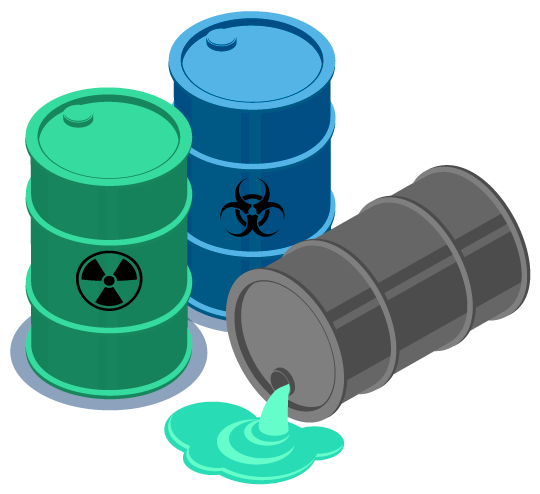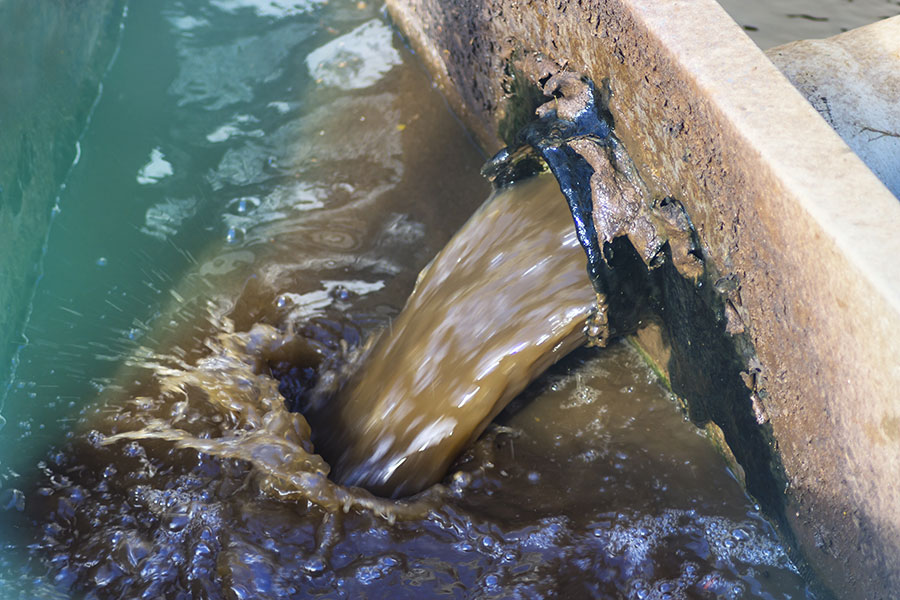Safe and Lasting Liquid Waste Disposal: Your Go-To Service Provider
Safe and Lasting Liquid Waste Disposal: Your Go-To Service Provider
Blog Article
Understanding the Comprehensive Refine of Fluid Waste Disposal: Best Practices and Environmental Impact Considerations
The administration of fluid waste disposal is a multifaceted issue that needs a thorough understanding of numerous best practices and their connected environmental impacts. From the types of fluid waste generated to the approaches utilized for collection, treatment, and final disposal, each step plays a critical function in protecting ecosystems and public health.
Kinds Of Fluid Waste
Understanding the different kinds of fluid waste is important for reliable administration and disposal methods. Fluid waste can be generally categorized right into several types, each needing one-of-a-kind handling and treatment methods.
Industrial liquid waste often consists of hazardous materials, including heavy steels, solvents, and chemicals, created throughout making processes. These wastes necessitate stringent regulatory compliance to secure human wellness and the environment. Residential fluid waste primarily refers to wastewater generated from homes, including sewage and greywater, which, although less poisonous, can still posture significant dangers if poorly managed.
Agricultural fluid waste, consisting of drainage from ranches, commonly contains plant foods and chemicals that can result in environmental destruction otherwise dealt with effectively. Clinical liquid waste, created from healthcare centers, consists of contaminated liquids such as physical fluids and chemicals, calling for specialized disposal methods to avoid infection and environmental contamination.
Last but not least, oil and oil waste, typically created by restaurants and automotive sectors, can create severe obstructions in sewer systems otherwise managed correctly. Recognizing these classifications assists in targeted methods for therapy, compliance with guidelines, and reliable disposal methods, eventually promoting ecological sustainability and public health and wellness security.

Collection Methods
Efficient collection techniques are essential for the appropriate management of fluid waste, making sure that it is gathered safely and successfully before therapy or disposal. Various strategies are used depending on the type of liquid waste created, the quantity, and the certain characteristics of the waste.
One common method is the use of devoted collection tanks or sumps, which are designed to record liquid waste at the source. These systems often incorporate pumps that assist in the transfer of waste to bigger storage space containers or treatment centers. Furthermore, mobile collection devices equipped with vacuum cleaner technology are employed in circumstances where waste is produced periodically or in hard-to-reach areas.
For commercial setups, closed-loop systems can successfully decrease spills and leakages, permitting the healing and reuse of liquid waste. It is likewise important to educate workers on appropriate collection methods to reduce dangers connected with unsafe materials.
In addition, carrying out normal upkeep timetables for collection devices guarantees ideal performance and security. The assimilation of innovative monitoring systems can boost collection effectiveness by supplying real-time information on waste levels and possible risks. Overall, effective collection methods are fundamental to lasting liquid waste monitoring techniques.
Treatment Procedures
Treatment procedures play an important function in the management of fluid waste, changing potentially dangerous materials right into multiple-use resources or safe effluents - liquid waste disposal. These processes can be extensively classified right into physical, chemical, and organic approaches, each tailored to attend to specific pollutants existing in the waste stream
Physical therapy techniques, such as sedimentation and purification, job by getting rid of put on hold solids and particle matter. These techniques are often the very first step in the therapy chain, properly lowering the tons on succeeding procedures. Chemical treatments entail using reagents to neutralize damaging materials, precipitate heavy steels, or oxidize organic contaminants, thus improving the safety and security of the effluent.
Organic therapy procedures, consisting of turned on sludge systems and anaerobic food digestion, take advantage of the all-natural capabilities of bacteria to break down organic issue. These approaches are specifically efficient for wastewater including naturally degradable pollutants. Advanced treatment innovations, such as membrane filtering and advanced oxidation processes, are significantly utilized to achieve greater levels of purification.
Incorporating a combination of these treatment methods not only makes sure compliance with regulative standards yet additionally advertises ecological sustainability by recuperating beneficial sources from fluid waste.
Disposal Options
Just how can companies make sure the risk-free and accountable disposal of liquid waste? Effective disposal choices are important for guarding public health and the setting. The primary techniques include land incineration, disposal, and treatment complied with by discharge into metropolitan wastewater systems.
Land disposal includes the cautious containment of liquid waste in marked garbage dumps, making sure that it does not leach into surrounding soil or water. Incineration, on the other hand, topics liquid waste to heats, transforming it right into ash and gases, which require appropriate filtration to decrease exhausts. This technique is ideal for dangerous wastes that can not be treated with standard means.
In situations where liquid waste can be dealt with, companies might go with biological or chemical treatment processes to reduce the effects of unsafe elements before releasing the dealt with effluent into community systems. This path generally straightens with regulatory requirements, making sure that the effluent satisfies security standards.
Eventually, companies must conduct thorough analyses of each disposal alternative to determine its stability, thinking about variables such as waste composition, regulatory compliance, and potential risks to health and wellness and the atmosphere. By choosing appropriate disposal methods, organizations can add to a responsible waste monitoring method.
Environmental Impact
The environmental influence of fluid waste disposal is an important consideration for companies seeking to reduce their environmental footprint. Inappropriate disposal techniques can cause considerable contamination of water resources, dirt deterioration, and adverse results on neighborhood communities. For example, harmful liquids anonymous can seep right into groundwater, posing dangers to drinking water materials and water life. Additionally, the discharge of unattended or improperly treated waste right into surface waters can result in eutrophication, bring about oxygen deficiency and the subsequent fatality of fish and various other microorganisms.

To alleviate these effects, companies need to adopt best methods such as carrying out extensive waste treatment procedures, promoting recycling and reuse, and adhering to regulatory criteria. By taking an aggressive approach to liquid waste management, entities can significantly reduce their environmental footprint while sustaining sustainable advancement goals. Ultimately, an extensive understanding of the environmental effects connected with liquid garbage disposal is vital for educated view it now decision-making and accountable stewardship of natural deposits.
Conclusion
Efficient management of fluid waste is essential for protecting environmental stability and public health. By taking on finest methods in disposal, collection, and treatment, along with adherence to regulative criteria, the capacity for unsafe contamination of environments can be substantially minimized. Continuous improvements in innovation and processes add to lasting waste administration initiatives. Inevitably, a comprehensive understanding of fluid waste disposal not just reduces environmental effects however additionally fosters a commitment to accountable resource monitoring and ecological stewardship.
The administration of liquid waste disposal is a complex concern that calls for a thorough understanding of different finest techniques and their connected environmental impacts. From the types of liquid waste created to the approaches you could try these out employed for collection, therapy, and last disposal, each action plays an essential role in guarding environments and public health and wellness.The ecological impact of liquid waste disposal is a vital consideration for organizations looking for to lessen their eco-friendly footprint. Eventually, a detailed understanding of the ecological influences associated with liquid waste disposal is important for informed decision-making and liable stewardship of all-natural sources.
Inevitably, a comprehensive understanding of liquid waste disposal not just reduces ecological impacts but likewise promotes a commitment to responsible source administration and ecological stewardship.
Report this page